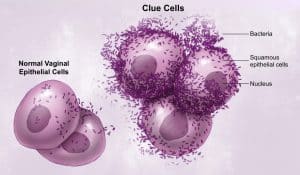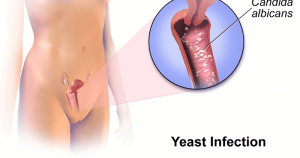Vaginitis is a term that refers to the inflammation or infection of the vagina, caused by different agents such as bacteria, fungi, viruses, and non-organic materials. Vaginitis could start as a result of irritation causing itching, burning, and in some cases, vaginal discharge.
There are different types of vaginitis, depending on the causative agent. This makes it difficult to make the right diagnosis on your own as it is a challenge even for an experienced doctor. The symptoms for the types of vaginitis differ and can be easily treated if you know what to do. However, to be safe, it is advisable you see a doctor before you commence treatment.
In this article, you will understand what vaginitis is, the symptoms of vaginitis, its risk factors, and treatment. You will also get familiarized with the complications that could arise from having vaginitis.
Understanding Vaginitis
The vagina is a host to different microorganisms, bacteria to be precise. There are different types of bacteria in the vagina, one of them being Lactobacillus. Others, such as Leptotrichia, Streptococcus, Atopobium, and Megasphaera, together with Lactobacillus help to protect the vagina from pathogenic microbes.
They achieve this by secreting hydrogen peroxide or lactic acid to make the vaginal environment inhabitable for harmful microbes. To maintain the security the vaginal flora provides for the vagina, a balance must be maintained; a balance that dictates that the population of bacteria in the vagina must not exceed or fall short of a threshold. If it does, infection will occur.
The vagina remains healthy when it is kept at an acidic pH less than 4.5. When this pH value is exceeded, there is a high chance of bacterial vaginosis, yeast infection, and other vaginal inflammatory disorders.
Vaginitis occurs when there is an imbalance between yeast and bacteria population in the vagina. It is characterized by awful smell, different vaginal discharge (depending on the type of vaginitis), inflammation, and sometimes, pain.
Note that it is normal to have vaginal discharge even during pregnancy. However, there is a problem when the smell is awful.
Types of Vaginitis
The types of vaginitis that are known are classified based on the pathogen causing the infection. As we have said earlier, vaginitis is a term used by health care professionals to describe infections that affect the vagina. Here are the types of vaginitis.
-
Bacterial Vaginosis
Bacterial vaginosis arises when there is the threshold for the bacterial population your vagina can take has been exceeded. In other words, bacterial vaginosis is a result of vaginal bacteria over-population.

It is usually known by the strong fish-like odor it gives off.
-
Trichomoniasis
Trichomoniasis is a type of vaginitis is caused by a one-celled protozoan that is transferred from person to person during sexual intercourse. It is present in both males and females and causes pain during urination and sexual intercourse in women.
-
Yeast infection
Yeast infection is a commonly known vaginal infection. It is also called Candida albicans, and is caused by Candida, a fungus that lives as part of the vaginal flora in small quantity.

There are other vaginal infections that can be categorized as types of vaginitis since they are infections that affect the vagina and cause inflammation and pain. They are:
-
Viral vaginitis
These are vaginitis caused by viruses. Example is the Herpes Simplex Virus (HSV) and Human Papillomavirus (HPV). It is transmitted through sexual intercourse.
-
Gonorrhea
Gonorrhea is another sexually transmitted disease that not only affects the vagina but also the urethra, throat, rectum, and cervix. It is caused by a bacterium that gets into the body through the vagina, mouth, or anus.
-
Chlamydia
Chlamydia is a bacterial infection that is also sexually transmitted. Its treatment is easy but it is difficult to diagnose since it may present no symptom. If left untreated, it may cause serious health problems.
Symptoms of Vaginitis
Despite the differences in the type of organisms that cause the different type of vaginitis, they present a common front when it comes to the signs that announce their presence. On further examination, they can be differentiated.
- Pain during urination
- Painful sexual intercourse
- Itching or irritation in the vagina
- Change in nature of vaginal discharge
These symptoms may be different in some specific vaginal infections; however, they are similar to the symptoms of other vaginal infections.
Risk Factors of Vaginitis
Vaginitis doesn’t just happen, there are causative agents and other things that may trigger the action of these agents. The risk factors of vaginitis include:
- Douching
- Medications
- Hormonal changes
- Use of hygiene products
- Intrauterine device (IUD) for birth control
- Spermicides
- Sexual intercourse
- Untreated diabetes
- Damp and tight-fitting clothing
Treatment of vaginitis
The treatment of vaginitis addresses the cause of the infection. If your vaginitis is bacterial in nature, your medication will be an antibacterial. Other causative pathogens will be eliminated or reduced to the acceptable minimum by medication aimed at doing that specifically for that pathogen.
Before treatment, your doctor will want to see the symptoms your body have been displaying, especially your vaginal discharge. The nature of your discharge will help the doctor know what pathogen he is dealing with exactly.
It is possible that your vaginitis might be a repeat infection, that is, you might have had the infection before, and therefore know what exactly is wrong with you. However, do not self-medicate. Let the doctor decide your best course of treatment.
Also, avoid douching before going to see your doctor. It will hide the true extent of the infection and lead the doctor astray in making the right diagnosis.
For vaginitis that occurs due to hormonal changes, your doctor will recommend medications that help you increase the level of hormones in your body, for instance, estrogen.
Complications that could arise from Vaginitis
It is common for complications to arise from infections that are associated with the reproductive system. When left untreated, thee infections can spread to other parts of the body and cause harm because they are in places they shouldn’t be.
Here are some of the complications that may arise if you have any of the types of vaginitis and leave them untreated.
-
Premature Birth
With vaginitis such as bacterial vaginosis, there is the risk of delivering a child before term. It is best to get yourself checked and treated once you notice any funny business down there.
-
Increased infection risk after gynecologic surgery
Surgeries that involve the vagina, cervix and uterus might become a lot more complicated if after the surgery, they get infected due to pre-existing vaginal infection. It is best to treat them before undergoing any surgery.
-
Increased risk of getting other sexually transmitted infections
Being infected with a vaginal infection opens the door for other infections. For instance, Chlamydia makes it easier to be infected with Gonorrhea. The inflammation and excessive discharge makes for a good pathogenic breeding ground.
-
Invasive candidiasis

Candida, also called yeast infection, when left untreated spread to other parts of the body such as the eyes, bones, blood, brain, and the heart. This makes it more difficult to treat and leads to other health problems.
-
Birth deformity
When candida is found in a pregnant woman (it sometimes happens due to hormonal changes) and is untreated, it may lead to blindness in the fetus.
Conclusion
Vaginitis is a broad term used by doctors to refer to any form of infection that affects the vagina, causing inflammation, unusual discharge, and pain during sex or urination. There are different types of vaginitis, depending on the causative agent. It usually happens due to the breach in the vaginal flora balance in the vagina.
It is easy to treat some of these infections; however, they may pose a bigger challenge when they are left untreated for some time. They also lead to some complications; therefore, it is advisable that they get treated as soon as possible.

